Dr. Omar Janneh
The Gambia’s TRRC seems to be turning into a conflicted Commission because the Executive seems totally determined to continue to display total disregard to even the problematic TRRC Act, 2017 they constructed. We are gradually witnessing the composition of a TRRC that may earn it the most conflicted truth commission. Some of the readers may be aware of the following pieces:
Here is how the journey of the (seemingly conflicted) TRRC started:
- The problematic TRRC Act, 2017 which gave excessive powersto the President was passed on December 13, 2017 and gained presidential assent on January 18, 2018;
- Acting within the TRRC Act, 2017; 22(2), the (seemingly conflicted) President, in consultation with the Minister and Public Service Commission, appointed the Executive Secretaryof the TRRC who they should have known is conflicted and the Executive Secretary himself should have known that he is conflicted (TRRC Act, 2017; 17(1-4);
- Acting within the TRRC Act, 2017; 24(1-3), the (conflicted) Executive Secretary appointed the Director of Research and Investigationswho we know took up armsagainst an elected government in The Gambia which makes him conflicted (TRRC Act, 2017; 17(1-4);
- Acting within the TRRC Act, 2017; 24(1-3), the (conflicted) Executive Secretary appointed the Deputy Executive Secretaryand Director of Communications, Outreach and Mediaof the TRRC.
Going forward, it may be helpful for the Secretariat to find creative ways to quickly establish a website dedicated to the TRRC, which may send a positive signal to the donors in regards to our priories and image. It will allow the rest of the world, especially those who are not Facebook and Twitter users, to know what is going on with The Gambia’s TRRC as well as lessen the personalisation of the TRRC and its consequent deepening of the conflict of interest that has already surrounded the Commission.
There is an expectation (at least from fair-minded citizens, bilateral partners, AU, UN, and donors), because it is at least implied, if not very explicit in the TRRC Act, 2017 that the post of Chairperson, Deputy Chairperson (-indeed all Commissioners) of the Commission must go to individuals with no discernible conflicts of interests [TRRC Act, 2017; section 17(1-4)] as well as those who fulfil the criteria in section 5(3) of the TRRC Act, 2017. At the very least, the criteria the Commissioners and members of the TRRC must fulfil (and it is against these measures, i.e., the Executive’s own rules that much is being written about) are essentially the 2 sections of the TRRC Act, 2017 which are as follows:
- TRRC Act, 2017; section 5. Appointment of members
(3) A person shall not be qualified for appointment as a Commissioner if he or she –
- is known to be actively involved in a political party;
- an un-discharged bankrupt, or;
- has been convicted of a felony.
- TRRC Act, 2017; section 17.Disclosure of interest
- A member of the Commission who has an interest in any complaint made to the Commission, shall-
- disclose to the Commission the fact of such interest and the nature of it; and
- not take part in any hearing or decision of the Commission relating to the Complaint.
- For the purpose of this section, “interest” means any matter that has potential to undermine or compromise the independence of or judgement of a Commissioner.
- A disclosure of interest by a member shall be recorded in the minutes of the Commission.
- A member who contravenes sub-section (1) may be removed from the Commission.
On August 20/21, 2018, we received theannouncementof the 11 names intended to be appointed by the President as Commissioners of the TRRC. Please find below the names of the 11 Commissioners the President intends to appoint:
- Abdoulie (Mori Kebba) Janneh: Chairperson – Former Under Secretary General of the United Nations at the Economic Commission for Africa and current Head of the Mo Ibrahim Foundation (MIF).
- Adelaide Sosseh Gaye: Deputy Chairperson – Former Principal Saint Joseph’s High School, Gender Consultant and Retired Educationist.
- Anna Ngalu Jones- member – National Coordinator, West African Network for Peace-building, The Gambia (WANEP). Peace and conflict resolution expert.
- Mustapha Kah: Member of the National Youth Council. A graduate in Political Science and Law and currently working at the Ministry of Basic & Secondary Education (MOBSE).
- Abdourahman Sey: Member representing the Central River Region. He is an Imam
- Ma Nyima Bojang: Member representing the West Coast Region. She is a teacher.
- Amie Samba: Member representing Lower River Region. She is a retired civil servant
- Lang Kinteh: Member North Bank Region. Retired civil servant.
- Jammeh Ceesay: Member representing Upper River Region. He is a farmer and the Agric Sub Head of the Village Development Committee (VDC).
- Bishop James Yaw Allen Odico: Member – Bishop of the Anglican Diocese of The Gambia.
- Imam Ousainou Jallow: Member – Imam, Pipeline Mosque.
It was very refreshing for the Executive to invite the public (the Gambians– in the country and abroad) to submit objections to the names. But this welcome announcement has been dampened by the fact that they only gave us 10 days to send the objections by no other means, but surface mail or on foot to the Justice Ministry, Marina Parade, Banjul. In fact, given this very tight deadline, one would have thought that the Executive would have facilitated the process for the public to submit their objections. The fact that there has been no or little known public sensitisation, and advocacy on the matter and no alternative methods were issued to enable citizens in the rural Gambia and the diaspora to send in their objections to the Commissioners intended to be appointed by the President seems irresponsible. Besides, they have not told us what they intend to do with the objections they receive and how many (valid) objections it would take to trigger a rethink of any appointment. Indeed, it is not known how many of us have seen, read and understood the TRRC Act, 2017 to allow us to object to any of the nominated Commissioners, should we need to. To ensure that we all have access to the (problematic) TRRC Act, 2017, please click here.
Now, a bit of search on the intended Chairperson of the TRRC, Mr. Abdoulie Janneh, revealed some of what the Executive shared with us about him. In regards to his current assignment, here is what can be found on the Mo Ibrahim Foundation’s website, and you can click hereor read the text below:
“Abdoulie Janneh is Executive Director, Liaison with Governments and Institutions in Africa for the Mo Ibrahim Foundation; the former UN Under-Secretary-General and Executive Secretary of the Economic Commission for Africa (ECA), prior to which he was UNDP Regional Director for Africa. Mr Janneh is a strong advocate for aligning development efforts to Africa’s priorities.
Mr Janneh remains engaged in supporting the African Union vision, NEPAD, the African Peer Review Mechanism and the climate change agenda.
He is chair of the African Governance Institute and serves on the Boards the Coalition for Dialogue on Africa (CoDA), Pax Africana and Africa Forum amongst others.”
Further searches show that Mr. Janneh seems to be a very,very busy man, but I am sure he has given this challenging assignment much thought. I think that Mr. Janneh’s wisdom, leadership, extensive experience in the MIF, and previous track record in UN and especially his contacts within it and elsewhere would be invaluable to the TRRC.
In regards to Ms. Adelaide Sosseh Gaye, Mr. Janneh’s intended Deputy, many would know that she has been a vocal critic of Dictator Jammeh. Similarly, her daughter, Ms. Ndey Tapha Sosseh has been a solid critic of Jammeh’s cruelgovernment, especially after the brutal killing- on December 16, 2004 of her dear colleague, our veteran journalist Mr. Deyda Hydara, of blessed memory. Furthermore, some of us would know that until recently, Ms. Ndey Tapa Sosseh was living in exilesince about 2009. We may also be able to say with some certainty that Ms. Adelaide Sosseh Gaye is a UDP supporter. If this can be confirmed, it makes her unsuitable for appointment as a Commissioner of the TRRC under the TRRC Act, 2017; 5(3)(a). Notwithstanding, Ms. Adelaide Sosseh Gaye seems sufficiently conflicted and therefore unsuitable for appointment, especially as Deputy Chairperson of the TRRC.
With 6 days remaining, the search intensifies (for me at least) on the remaining 9 intended Commissioners. Using the Executive’s own rules as outlined in the above sections of the TRRC Act, 2017, it remains unclear if all of the intended Commissioners can safely sail through without objections to their appointment as Commissioners of The Gambia’s TRRC. Overall, 10 days seems too short for the public, especially for most the affected victims in the country and abroad to send in their objections, by surface mail or on foot, in a timely manner. What may be certain at this stage, which may be the Executive’s design, is that the Executive’s actions may give them the outcome they want, but it may be an outcome that is prejudiced. Therefore, their actions further raise doubts about the TRRC as regards to its impartiality, fairness, legitimacy, credibility and above all its desire to deliver reconciliation and justice for some of those most affected by Jammeh’s brutal regime. In brief, any commission that fails to take conflict of interest seriously, with the Executive displaying tendencies for partiality, flawed or incompetent practices that commission is likely to fail.

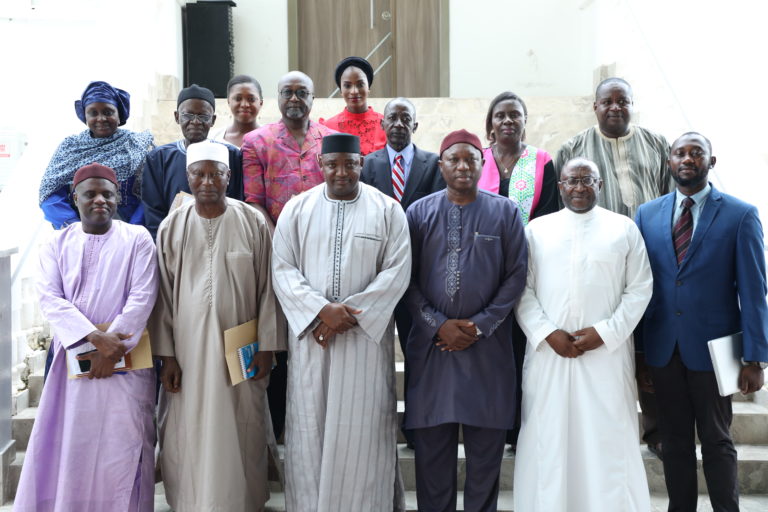
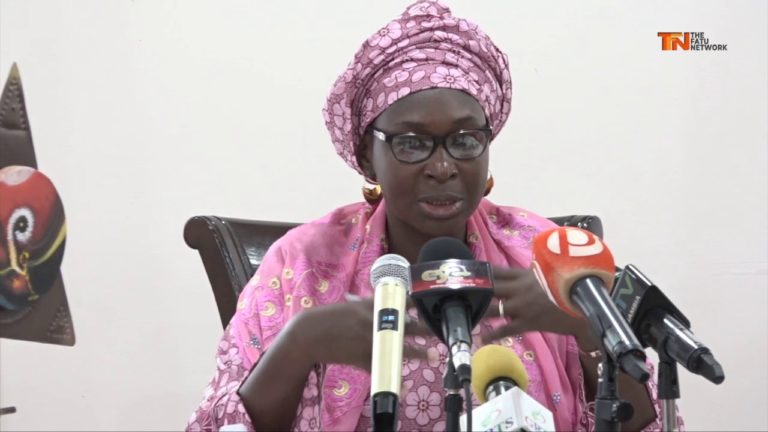

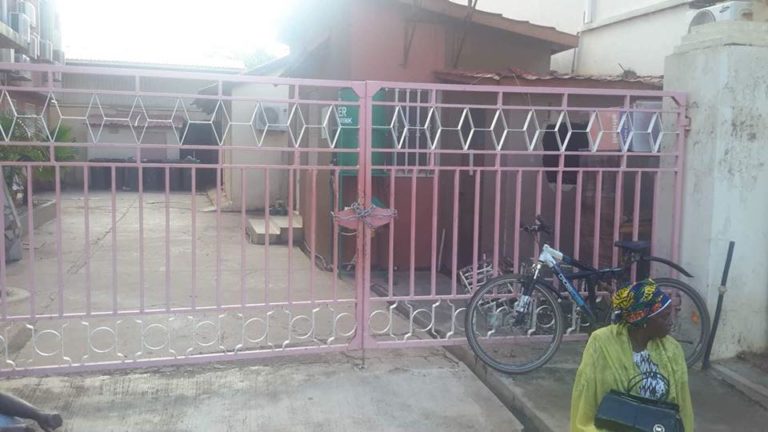
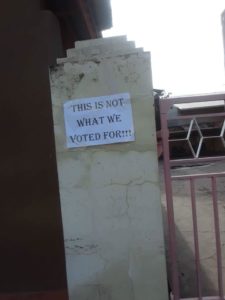
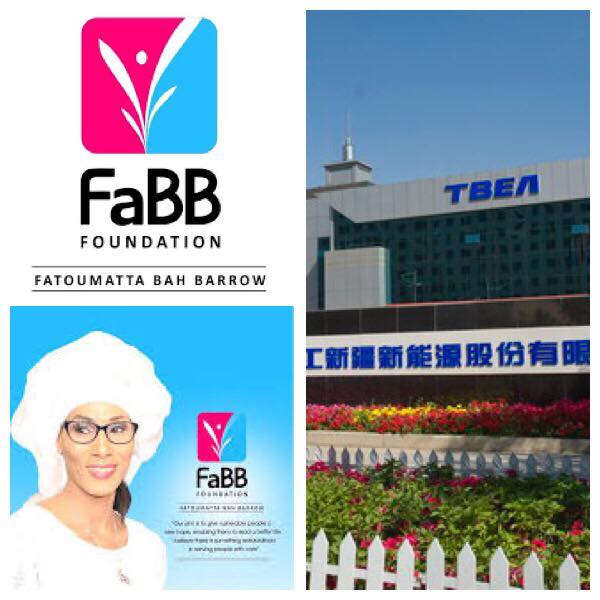



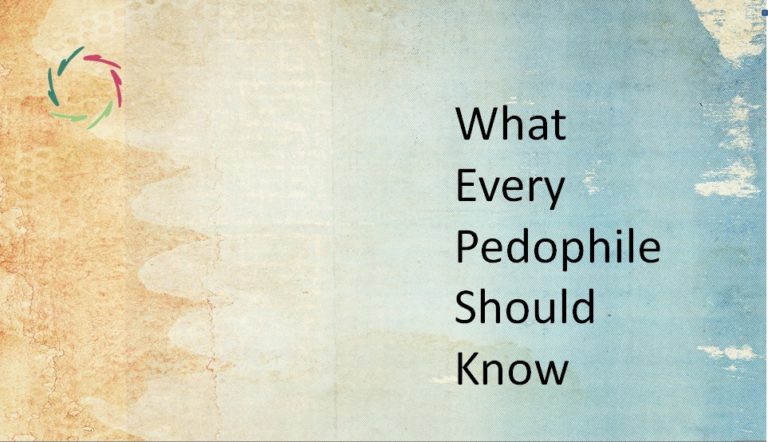
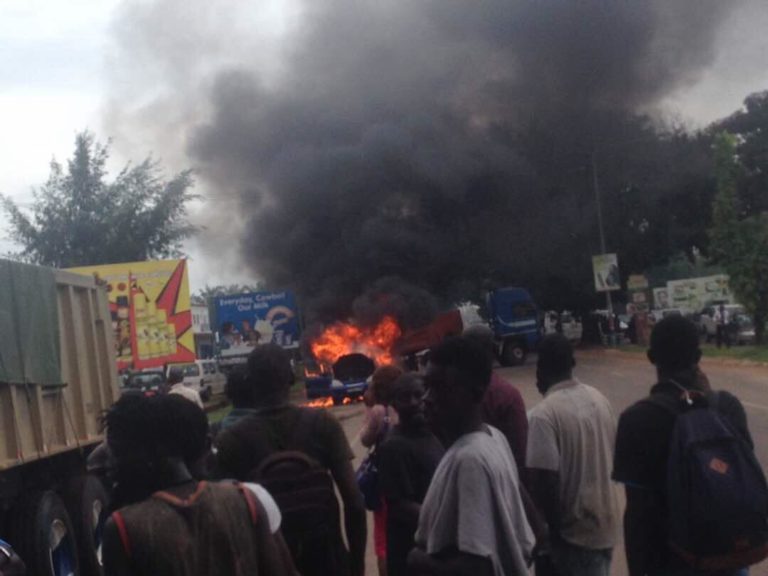
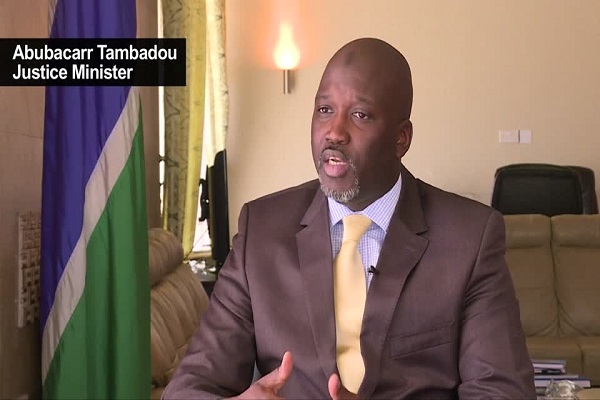
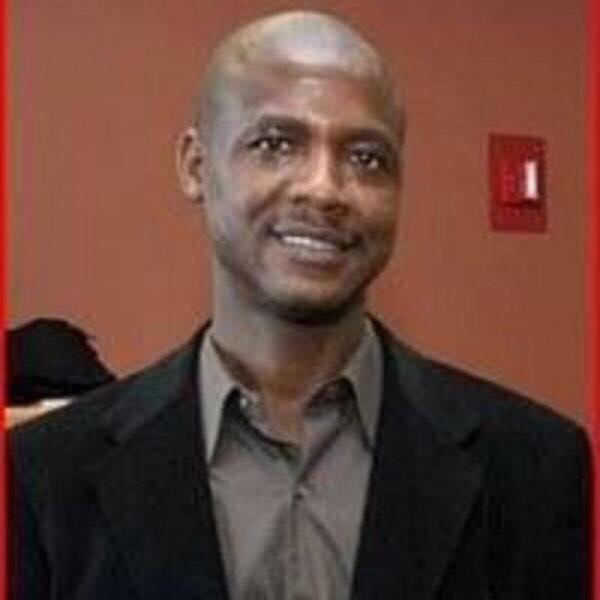
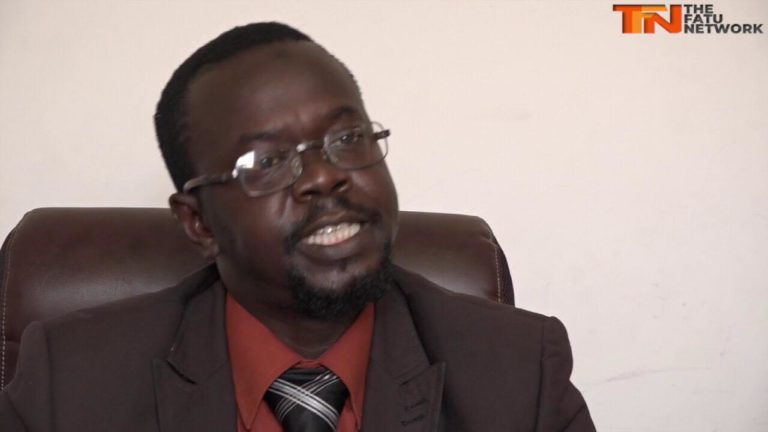
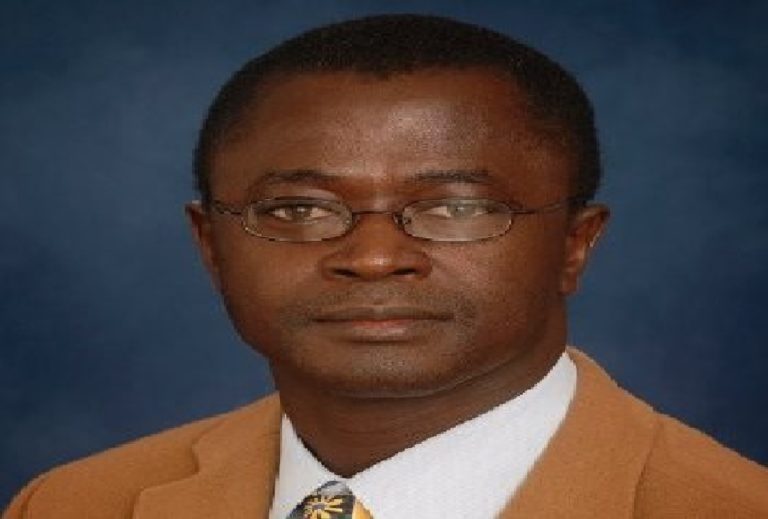
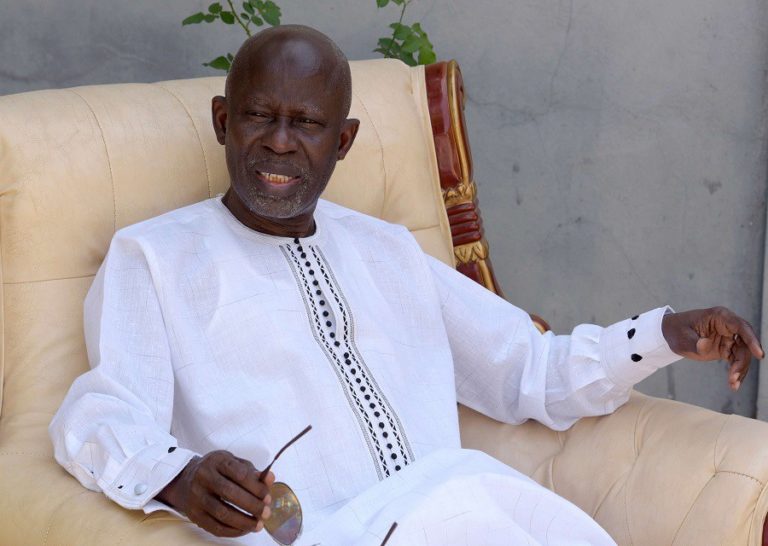
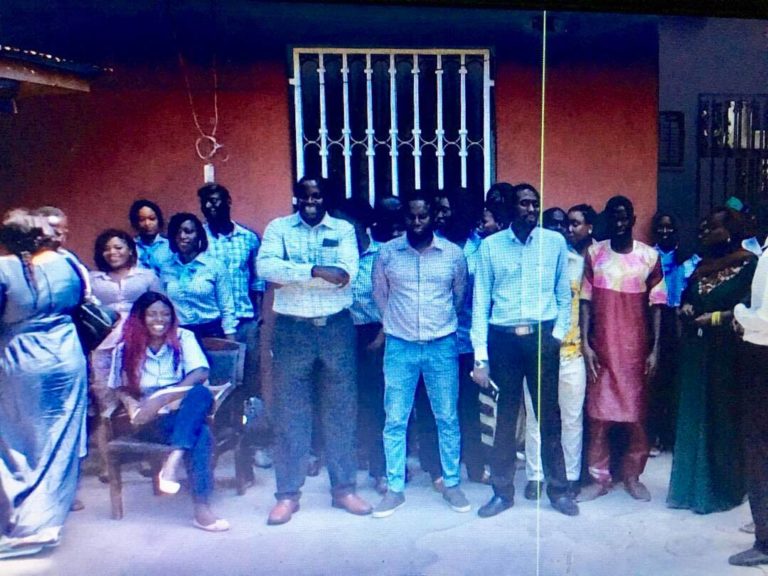
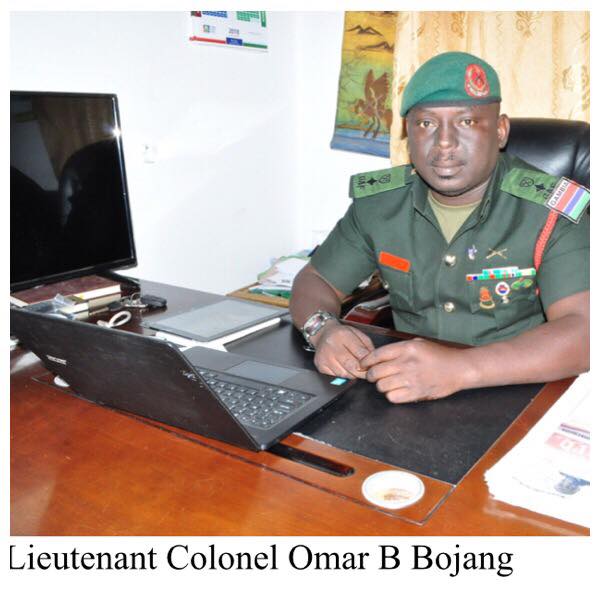
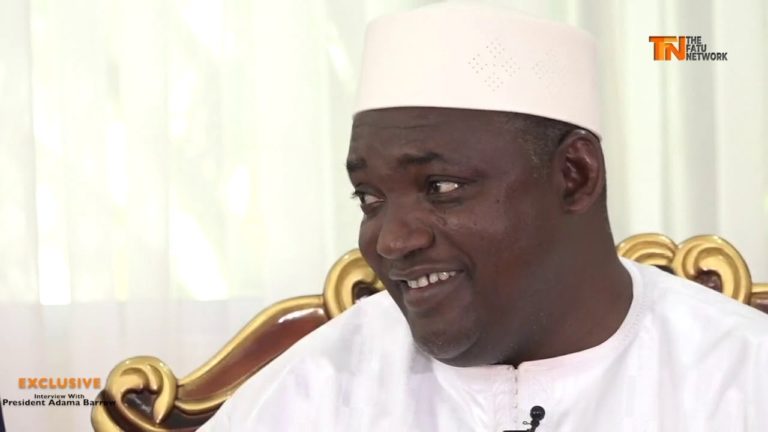
“I Cannot Speak For The First Lady’s Foundation” Presidential Spokesperson
The Director of Press at the Office of the President, Mrs Amie Bojang Sissoho has said that the First Lady, Fatoumata Bah Barrow’s Foundation is not part of her jurisdiction.
The Presidential Spokesperson who was speaking at a press briefing made these remarks regarding the D33 Million Dalasi deposited to the said Foundation’s bank account by TBEA Company LTD, a Chinese manufacturer of power transformers and a developer of transmission projects. The saga raised eyebrows in the country, especially on social media.
“The First Lady’s Foundation is not part of my jurisdiction,” Madame Bojang Sissoho said.
The State House Press Director further stated that her office is treating the President’s wife as First Lady without having anything to do with her foundation.
“I’m not a member of the First Lady’s Foundation,” she added.
Responding to the D11 Million donation from an anonymous philanthropist to President Barrow, the State House Press Director said the anonymous donor is a genuine person who wants to support the government. She added that some of these anonymous donors made agreements with President Barrow not to reveal their identities.
Despite, the public outcry President Barrow persistently accepted donations from anonymous sources such as the 57 pickup trucks given to the National Assembly including the recent D11 Million Dalasi given to the pilgrims to Mecca.
“The President has assured that his government is committed to transparency,” Madame Bojang Sissoho said.
The State House Press Director also told journalist about plans to set up an Anti-Corruption Commission which she said the President would not have established if he is engaged in corrupt practices.
Madame Bojang Sissoho also informed the press about the appointment of one Lamin Samateh as the head of the six member panel assigned to look into the Social Security saga.
The SSHFC saga has been dragging for the past months after the Managing Director was petitioned by the staff to the Office of the President calling for his removal.The disgruntled staff have yesterday closed the Head Office protesting for the authorities to revoke the suspension of Momodou Camara, a staff representative.
Meanwhile, the Director of Press disapproved the question raised by one of the journalists regarding the alleged views of the SSHFC Staff about the President’s statement on the matter.